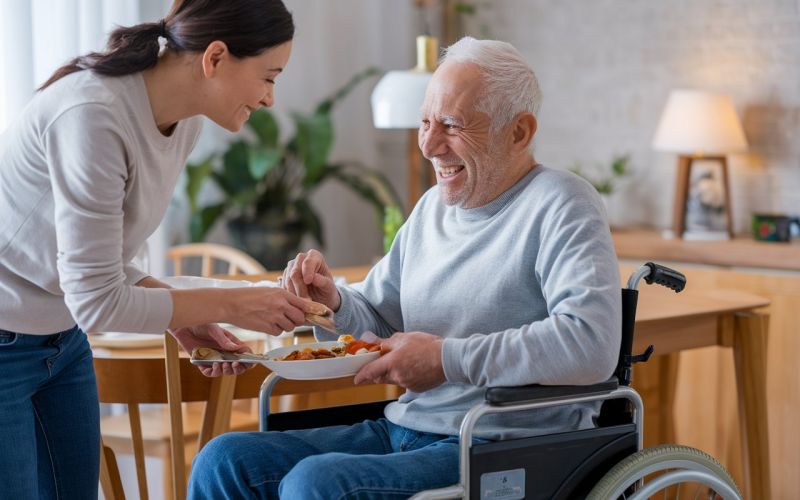End-Life Care: How Involved is the Caregiver?
The iSavta Team | 13.11.2019

End of Life care or late stage care emphasizes on providing a quality life to those persons who are nearing the end of life. This applies especially to those individuals who have serious illnesses where cure is no longer possible. The main aim of this type of care is to help the person feel good until their last breath. End of life care targets to provide comfort and assistance to a dying person by helping them with their physical, emotional, mental, spiritual, and social needs.
Support and medical care for people living with chronic illnesses may take some time before their death. During these trying times, the involvement of family members, friends, and the healthcare team is very much needed. As the body and the mind of the person deteriorates, more attention and support is required by those close to their hearts. The person’s wishes and concerns before their death should be addressed and should be prioritized. You will be appeased that you did what you could by respecting the hopes and wishes of the person while relieving them from further suffering.
Physical Assistance
It could be physically and emotionally exhausting to be a caregiver to someone who is in their final stage of life. The feeling that you are trying to improve your loved ones quality of life at the same time knowing that they are already dying is quite difficult to handle. The demands that a caregiver faces in caring for a person in their late stage is tough. For instance, many of these individuals cannot move, eat, or talk well. They are unable to prepare food and feed themselves. They need assistance even in simple tasks such as bathing and dressing up. A caregiver needs extra physical strength in order to assist the individual in their mobility and other physically draining activities.
Emotional Management
In these hard times, the caregiver is also involved in easing the individual’s pain. A person struggling with pain affects their mood and their communication with others. As a consequence of bodily pain, the person becomes easily irritable. As such, the caregiver should relieve these individuals from their feelings of loneliness, sorrow, and fear. To achieve this, the caregiver can aid the patient by connecting them to their loved ones, encouraging them to have conversations about their feelings, and listening without judgment.
Spiritual Needs
Many people nearing the end of life find solace in their spiritual belief. It would help if the caregiver can set up a time for the patient to talk to a person with the same faith and have someone read religious texts to him. The caregiver can also play religious music that may bring comfort to the patient.
With both the physically draining tasks and the varied emotions that the caregiver may experience, support from close friends and family is essential. Caregivers should keep close friends and family informed efficiently. For example, the caregiver can use social media to update the patient’s close friends and family. The caregiver may also use emails and text blasts to keep them in contact. Acknowledgment of the patient and his family members that he is dying is vital in late stage care. Awareness of a forthcoming death could help increase the chances of having the patient’s wishes and preferences be addressed. Once an approaching death of a loved one is accepted, pain management and other preparations for the end-of-life can be easily be accomplished.












